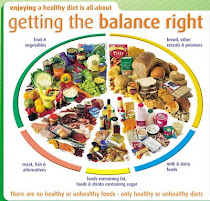With all this information that you've been given about nutrition, I hope you make more conscious, educated decisions about what goes in your mouth. And unless you are under the supervision of a doctor or dietitian, never take matters into your own hands when it comes to dieting. Even if you feel sure that you're overweight, the chances are that you're a healthy weight and it's all in your head. After all, you are your worst critic. Please don't think that it's healthy to loose weight, especially if you are an active athlete. Teenagers who try to diet and lose weight succeed in losing weight, but not in the way the they expect. Dieting results in loosing muscle, either because they end up not meeting their requirements for calories from protein to supply amino acids to the body, or a lack of calories results in a lack of energy. Without energy, you can't work out and build muscle or keep the muscle you worked so hard to attain.
Another problem that results in dieting is stunted growth. Stunted growth is when a child or teenager stops growing or declines in growth and does not reach the full potential of their height. The number one cause of stunted growth throughout the world is malnourishment, or lacking the proper macronutrients to survive. Your body has a type of priority system, and since height isn't necessary for one's immediate survival, your body cuts off supplies to the bones. By supplies, I mean calories, which, by the way, are units of energy. The body needs to use the energy for more essential things such as keeping your heart beating and running your body internally. There is a fine line between dieting and malnourishment, so please don't even venture anywhere near there. You might end up in very dangerous territory. Follow our guidelines and do some research of your own. Talk to a doctor if you ever feel that you are at risk of being overweight, but remember that dieting yourself is dangerous.
We have just given you a lot of information about your diet and nutrition. What should, should not, and how much you should eat should be clear. We've also given you some facts about what exactly is going on in your body when you eat a particular macronutrients, and what happens when you exceed or fail to meet your requirements. Lastly, there is an example of how you can eat in order to live up to your coaches expectations of excellence. You are what you eat, so always remember to eat right!
Here are some helpful links for further information:
http://kidshealth.org/teen/food_fitness/sports/eatnrun.html
http://youngwomenshealth.org/nutrition-sports.html
http://www.hsph.harvard.edu/nutritionsource/what-should-you-eat/carbohydrates/
Wednesday, April 28, 2010
Conclusion
Posted by Kylie at 2:55 PM
Subscribe to:
Post Comments (Atom)





0 comments:
Post a Comment